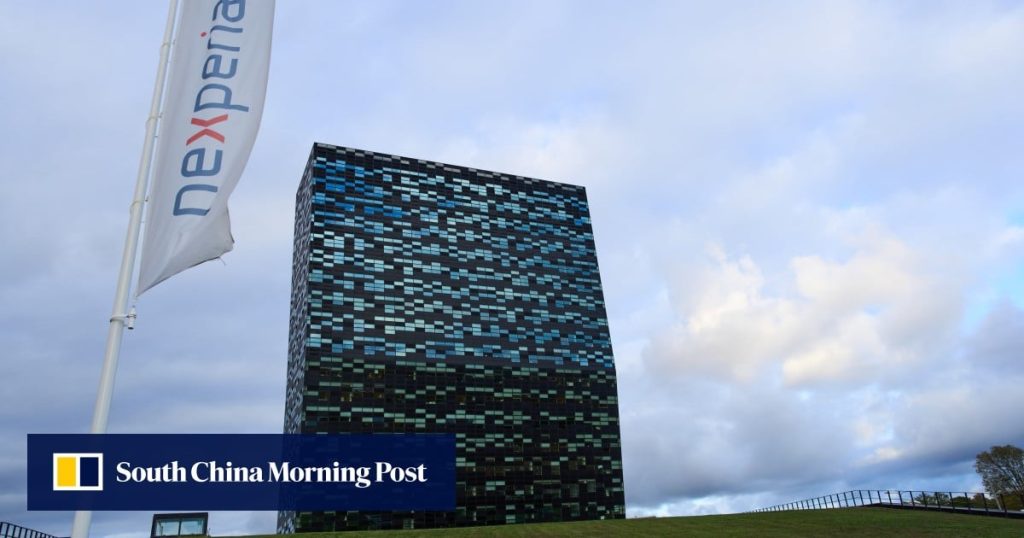Nexperia, the European semiconductor subsidiary of Chinese electronics part maker Wingtech, is caught in the crossfire of the US-China tech war and faces an uncertain future amid restrictions from both the Chinese and Dutch governments, according to analysts.
The Dutch government has taken over Nexperia, a move that provoked strong opposition from its Chinese owner Wingtech, the Chinese government and players in China’s semiconductor supply chain. They have vowed to fight for control of the Nijmegen-based chipmaker by leveraging key links in China, including a packaging and testing plant in the city of Dongguan in southern Guangdong province.
As a leading power-chip company, Nexperia’s situation created “increased risk of chip supply disruptions” in the global automotive and industrial supply chains, which were reliant on the company for components, said Wang Peng, a research fellow at the Beijing Academy of Social Sciences.
China’s Ministry of Commerce issued an export control notice on October 4, banning the domestic unit of Nexperia and its subcontractors from exporting specific Chinese-made components, the company said on Tuesday.
One of the closely watched assets owned by Nexperia is its Dongguan packaging and testing plant, which accounts for 70 per cent of its final product shipments. The export control calls into question whether the company will be able to ship its chips to foreign clients like Apple and Tesla.
Nexperia had more than 12,500 employees across Europe, Asia and the US, and shipped more than 110 billion products a year, according to its website.
The restrictions imposed on Nexperia were expected to force clients to shift orders to other power-chip makers including Infineon Technologies, On Semiconductor, STMicroelectronics and Rohm Semiconductor, said Bai Wenxi, chief economist at IPG China.


